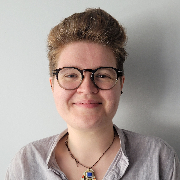At Prosper, we’ve spent the last four years building a new model for postdoc career development. Funded by the Research England Development (RED) fund and spearheaded by the University of Liverpool in partnership with The University of Manchester and Lancaster University, this model forms part of the sector-wide push to transform UK research culture for the better, and aligns with the goals of the UK Research and Innovation people and teams actions plan and Concordat to Support the Career Development of Researchers.
We co-created our offering with over 120 postdocs over the course of two year-long pilot cohorts – collaborating with third-party experts, employers, principal investigators and the wider sector.
Here are some of the key lessons and principles which informed our approach – now freely available to the whole sector via our new online hub, the Prosper Portal.
Postdocs have distinct career development needs
Postdocs comprise a very distinct group from a people development point of view, occupying a sort of ‘grey area’ between permanent academic staff and the student layer. They often fall between the cracks when it comes to available career development resources, which are usually geared towards more populous PhD or early-career researcher audiences and tailored toward academic career pathways.
Postdocs are also typically very attached to their identity as researchers, which can prove both a positive and a negative. On one hand, vocational passion is an asset – but on the other, deviating from the ‘traditional’ academic career path can often be seen as either failure or ‘selling out’.
All of Prosper’s resources are geared towards postdocs as postdocs.
The importance of taking a holistic approach
What career development means can vary a tremendous deal depending on the individual and where they’re at.
Some postdocs want to step back and figure out what they really want from their career, others might already have an idea of the direction they want to pursue but need help and ideas about how to get there.
Our model aims to bring all of these disparate aspects together into a coherent whole. Our Reflect section enables postdocs to identify their strengths, skills, values and career goals. Resources in Explore are geared towards helping postdocs gain a better understanding of the plethora of opportunities and career pathways open to them. And our Act resources are focused on building practical skills on everything from recruitment processes to tailoring an academic CV for commercial positions.
These areas can be used in an interconnected way or not, depending on the users’ priorities.
Leave no postdocs behind
We knew that for our offering to be fit for purpose and have something for everyone, we would need to ensure the postdocs we worked with reflected the diversity of the wider UK postdoc community, and that voices from all corners were incorporated.
We wanted to make sure there was relevant and relatable content for, for example, arts and humanities postdocs, as well as for women and ethnic minorities who lack proportional representation in both science, technology, engineering, and mathematics (STEM) and non-STEM fields.
Ease of access was paramount. Postdocs are an internationally mobile group – many are non-UK nationals, and non-native English speakers. They are often located somewhere besides a main university campus – whether conducting field work, or working at a research outpost, centre or archive.
This ethos – of democratising access – runs throughout Prosper, and we hope the result is that there is something useful for every postdoc on our portal, whatever their background, specialty or circumstances.
Principal investigators are a central piece of the puzzle
Managers of researchers, or principal investigators, are uniquely positioned to help postdocs with their career development. No one is better placed to create a positive working culture, valuing career development, where all staff can flourish. But principal investigators typically lack training in how to go about doing this, and like postdocs can struggle to find the time and access to relevant resources to support them.
With this in mind we established the principal investigator network to run alongside our postdoc cohorts. An informal forum of principal investigators from over 20 institutions across the country, it provided a platform for principal investigators to meet to engage with expert advice, discuss best practice, and share ideas with one another.
All the insights and content from our principal investigator network sessions have been incorporated into a section of the portal aimed specifically at Managers of Researchers.
Employer co-creation is crucial
Just as managers of researchers are uniquely positioned to set the tone within their teams, no one is better placed than employers to provide insight and information about the wider world of employment beyond academia.
We worked with over 100 employers large and small, covering the breadth of the UK economy. They helped us develop our 12 career clusters which represent the breadth of opportunities available to postdocs.
It’s not about academia vs industry
Speaking of which, it’s not about the ‘academia vs industry’ binary. The ingrained perception of ‘academia or bust’ is an outdated concept. The idea being that you either succeed as a researcher, or ‘sell out’ for a job in ‘industry’ (usually imagined as a for-profit enterprise and entailing a loss of intellectual freedom).
The binary fails to capture the myriad of not-for-profit organisations that offer opportunity to postdocs – government roles, non-governmental organisations, the third sector and more. And it also fails to capture the extent to which research-heavy career pathways – with comparable (or even greater) levels of ‘research freedom’ to those found in typical postdoc roles – are prevalent in today’s economy.
Community matters
Postdocs are often one of a select group of people across the planet with a deep focus and knowledge of a specific, research niche. They often work in small teams. This can sometimes make the role a lonely one.
Rather than just build a set of resources to be engaged with on an individual level, we aimed to build a sense of community into the fabric of our offering.
Our pilot postdocs had the opportunity to regularly meet in small groups. These sessions provided a psychologically ‘safe space’ for postdocs to bond and connect, sharing worries, learnings and information with each other in an inclusive setting.
Though the material and resources on our new site allow for flexible modular use by institutions, for those that wish to replicate this community element from the pilots we have created guidance and ready-made materials.
These are just some of the key themes that emerged during our development phase and informed the new postdoc career development offering that we are launching via our portal.
To learn more about Prosper, explore our resources, and find out how Prosper can work for you and your institution, visit our new portal.




